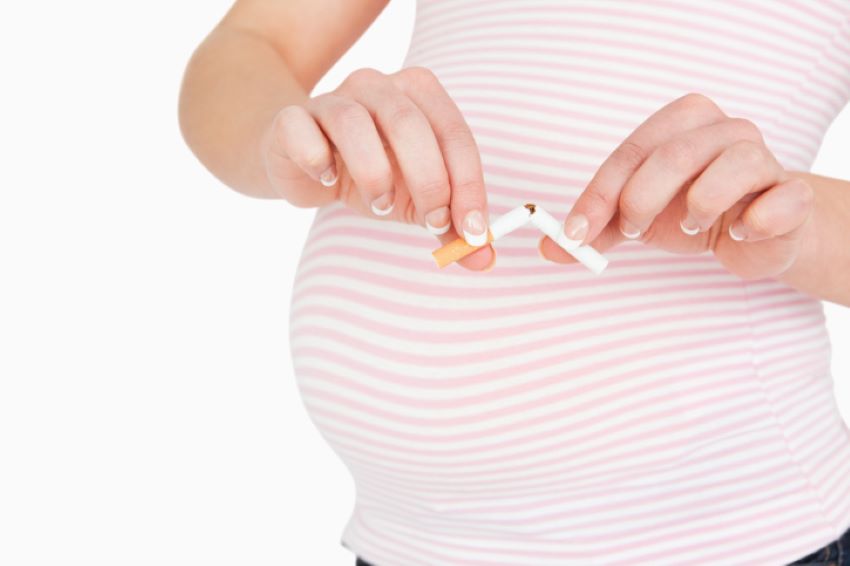
Just 1-2 cigarettes/day before or during pregnancy linked to major newborn health problems
Adds to evidence for would-be mums to stub out smoking, say researchers
Even light smoking of just 1-2 cigarettes a day either before or at any time during pregnancy is significantly associated with major health problems in the newborn, finds research published online in the Journal of Epidemiology & Community Health.
The findings add to the evidence indicating that women hoping to become, or who are, pregnant should stub out smoking to protect their newborn’s health, say the researchers.
Deaths and serious health issues among newborns have fallen sharply, largely due to improvements in maternity care. But admission to a neonatal intensive care unit is not uncommon, added to which any neurodevelopmental deficits may persist into adulthood, say the researchers.
In the USA, around 1 in 10 pregnant women smokes, and it’s well known that smoking during pregnancy is associated with heightened risks of preterm delivery, low birth weight, and restricted growth while in the womb.
But less well known, is whether the timing and intensity of maternal cigarette smoking may affect the newborn. This is important because many women believe it’s OK to smoke cigarettes before conception or in the first 3 months of pregnancy, or that light smoking is unlikely to be harmful, point out the researchers.
To explore this further, they drew on national birth certification data from the US National Vital Statistics System (NVSS) from 2016 to 2019, which included a total of 15,379,982 registered live births.
After excluding multiple births, women who had high blood pressure or diabetes before pregnancy, or without information on cigarette smoking in the 3 months before and during their pregnancy, 12,150,535 mother-infant pairs was available for data analyses.
Of these pairs, just over 9%, 7%, 6%, and just under 6% of the mums reported smoking cigarettes before pregnancy, and in the first, second, and third trimester, respectively. Smoking intensity was classified as 0, 1–2, 3–5, 6–9, 10–19, and 20 or more cigarettes/day.
The women who smoked had more risk factors for neonatal health issues: they tended to be younger, non-Hispanic White, unmarried, and obese, and to have low educational attainment, more previous births, and fewer attendances for prenatal care.
Major neonatal health issues were defined as: the need for assisted ventilation immediately after delivery; assisted ventilation for more than 6 hours; NICU admission for continuous mechanical ventilation; surfactant replacement therapy; suspected sepsis; and seizure or serious neurological problems.
The prevalence of all these issues was just under 9.5%.
Smoking either before pregnancy or in each of the 3 trimesters of pregnancy was associated with an increased risk of major neonatal health issues, either separately or combined, after adjusting for potentially influential factors, including age, ethnicity, and weight (BMI) before pregnancy.
The risk of more than one major neonatal health issue if the mother smoked before pregnancy was 27% higher, and 31-32% higher if she smoked at any time during her pregnancy.
And for individual components, the risk of admission to neonatal intensive care, for example, was 24% higher if the mother smoked before pregnancy, and 30-32% higher if she smoked during her pregnancy.
As to timing, women who smoked only before pregnancy or only during the first, second, or third trimester had higher odds of their newborn experiencing more than one major health issue than women who didn’t smoke at any point.
After adjusting for potentially influential factors, these odds were, respectively, 12%, 23%, 40%, and 21% higher.
Even light smoking—1–2 cigarettes a day—was associated with a heightened risk of major neonatal health issues.
For example, among mothers who smoked 1–2 cigarettes a day before pregnancy, the risk was 16% higher, rising to 31% higher if they smoked 20 or more a day.
And the risk of admission to intensive care for their newborn was 13% higher with a daily tally of 1-2 cigarettes, rising to 29% higher for 20 or more cigarettes.
This is an observational study, and as such, no firm conclusions can be drawn about cause and effect, added to which the data before pregnancy didn’t differentiate between those who smoked at any point in the preceding 3 months and those who smoked throughout, acknowledge the researchers. Nor was there any information on second hand exposure to tobacco smoke.
Nevertheless, they conclude that their findings suggest “that there is no safe period and no safe level of cigarette smoking shortly before or during pregnancy.” and “re-emphasise the need to prevent smoking initiation for non-smokers and to promote smoking cessation for smokers.”
21/08/2024
Research: Maternal cigarette smoking before or during pregnancy increases the risk of severe neonatal morbidity after delivery: a nationwide population based retrospective cohort study
Journal: Journal of Epidemiology & Community Health
External funding: None declared
Externally peer reviewed? Yes
Evidence type: Observational
Subjects: People





